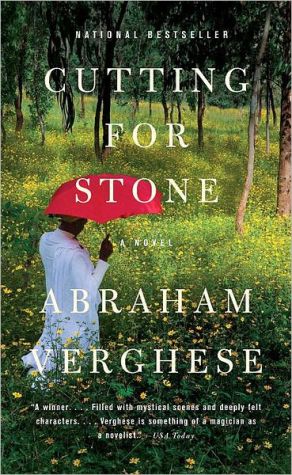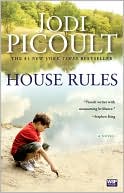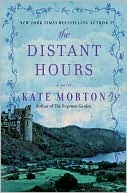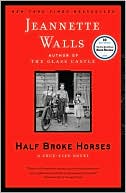Two Old Women, 10th Anniversary Edition: An Alaskan Legend of Betrayal, Courage and Survival
Based on an Athabascan Indian legend passed along for many generations from mothers to daughters of the upper Yukon River Valley in Alaska, this is the suspenseful, shocking, ultimately inspirational tale of two old women abandoned by their tribe during a brutal winter famine. Though these women have been known to complain more than contribute, they now must either survive on their own or die trying. In simple but vivid detail, Velma Wallis depicts a landscape and way of life that are at...
Search in google:
Based on an Athabascan Indian legend passed along for many generations from mothers to daughters of the upper Yukon River Valley in Alaska, this is the suspenseful, shocking, ultimately inspirational tale of two old women abandoned by their tribe during a brutal winter famine.Though these women have been known to complain more than contribute, they now must either survive on their own or die trying. In simple but vivid detail, Velma Wallis depicts a landscape and way of life that are at once merciless and starkly beautiful. In her old women, she has created two heroines of steely determination whose story of betrayal, friendship, community and forgiveness "speaks straight to the heart with clarity, sweetness and wisdom" (Ursula K. Le Guin).School Library JournalGr 7 Up-Velma Wallis adapted her prize-winning book (HarperPerennial, 1993) from a tale she first heard from her mother, an Athabascan Indian in the Alaskan Yukon. Its transition into audio format is impressive: taken from oral tradition, it's tellable and starkly poetic, while the deep rich voice of narrator Russell Means with his Native American inflections does much to enhance its power and authenticity. The story is compelling. Abandoned by their tribe during a brutal winter famine, two old women are left to perish on their own. Although they've grown used to complaining and letting others do for them, the two resolve not to wait passively for death but to fight against it. With trapping skills they haven't used for years and strengthened by their bond of friendship, the two women survive the winter to ultimately come face to face with the members of their tribe, none of whom has fared as well as they. Utterly convincing in its details and resolution, this will offer listeners in seventh grade and up vivid insight into a Native American culture. At the same time, it rises above the particulars of time and place to become a metaphor with a message or inspiration not only for students, women or the elderly, but for all members of the human race.-Carol Katz, Harrison Public Library, NY
Chapter One\ \ \ Hunger and cold take their toll\ \ \ \ \ The air stretched tight, quiet and cold over the vast land Tall spruce branches bung heavily laden with snow, awaiting distant spring winds. The frosted willows seemed to tremble in the freezing temperatures.\ Far off in this seemingly dismal land were bands of people dressed in furs and animal skins, huddled close to small campfires. Their weather-burnt faces were stricken with looks of hopelessness as they faced starvation, and the future held little promise of better days.\ These nomads were The People of the arctic region of Alaska, always on the move in search ,of food. Where the caribou and other migrating animals roamed, The People followed. But the deep cold of winter presented special problems. The moose, their favorite source of food, took refuge from the penetrating' cold by staying in one place, and were difficult to find. Smaller, more accessible animals such as rabbits and tree squirrels could not sustain a large band such as this one. And during the cold spells, even the smaller animals either disappeared in hiding or were thinned by predators, man and animal alike. So during this unusually bitter chill in the late fall, the land seemed void of life as the cold hovered menacingly.\ During the cold, hunting required more energy than at other times. Thus, the hunters were fed first, as it was their skills on which The People depended. Yet, with so many to feed, what food they had was depleted quickly, Despite their best efforts, many of the women and children suffered from malnutrition, and some would die of starvation.\ In this particular band were two oldwomen cared for by The People for many years. The older woman's name was Ch'idzigyaak, for she reminded her parents of a chickadee bird when she was born. The other woman's name was Sa', meaning "star," because at the time of her birth her mother had been looking at the fall night sky, concentrating on the distant stars to take her mind away from the painful labor contractions.\ The chief would instruct the younger men to set up shelters for these two old women each time the band arrived at a new campsite, and to provide them with wood and water. The younger women pulled the two elder women's possessions from one camp to the next and, in turn, the old women tanned animal skins for those who helped them. The arrangement worked well.\ However, the two old women shared a character flaw unusual for people of those times. Constantly they complained of aches and pains, and they carried walking sticks to attest to their handicaps. Surprisingly, the others seemed not to mind, despite having been taught from the days of their childhood that weakness was not tolerated among the inhabitants of this harsh motherland. Yet, no one reprimanded the two women, and they continued to travel with the stronger ones--until one fateful day.\ On that day, something more than the cold hung in the air as The People gathered around their few flickering fires and listened to the chief He was a man who stood almost a head taller than the other men. From within the folds of his parka ruff he spoke about the cold, hard days they were to expect and of what each would have to contribute if they were to survive the winter.\ Then, in a loud, clear voice he made a sudden announcement: "The council and I have arrived at a decision." The chief paused as if to find the strength to voice his next words. "We are going to have to leave the old ones behind."\ His eyes quickly scanned the crowd for reactions. But the hunger and cold had taken their toll, and The People did not seem to be shocked. Many expected this to happen, and some thought it for the best. In those days, leaving the old behind in times of starvation was not an unknown act, although in this band it was happening for the first time. The starkness of the primitive land seemed to demand it, as the people, to survive, were forced to imitate some of the ways of the animals. Like the younger, more able wolves who shun the old leader of the pack, these people would leave the old behind so that they could move faster without the extra burden.\ The older woman, Ch'idzigyaak, had a daughter and a grandson among the group. The chief looked into the crowd for them and saw that they, too, had shown no reaction. Greatly relieved that the unpleasant announcement had been made without incident, the chief instructed everyone to pack immediately. Meanwhile, this brave man who was their leader could not bring himself to look at the two old women, for he did not feel so strong now.\ The chief understood why The People who cared for the old women did not raise objections. In these hard times, many of the men became frustrated and were angered easily, and one wrong thing said or done could cause an uproar and make matters worse. So it was that the weak and beaten members of the tribe kept what dismay they felt to themselves, for they knew that the cold could bring on a wave of panic followed by cruelty and brutality, among people fighting for survival.\ In the many years the women had been with the band, the chief had come to feel affection for them. Now, he wanted to be away as quickly as possible so that the two old women could not look at him and make him feel worse than he had ever felt in his life.\ The two women sat old and small before the campfire with their chins held up proudly, disguising their shock. In their younger days they had seen very old people left behind, but they never expected such a fate. They stared ahead numbly as if they had not heard the chief condemn them to a certain death--to be left alone to fend for themselves in a land that understood only strength.\ Two Old Women. Copyright © by V. Wallis. Reprinted by permission of HarperCollins Publishers, Inc. All rights reserved. Available now wherever books are sold.
DedicationviiAcknowledgementsixIntroductionxiChapter 1Hunger and cold take their toll1Chapter 2"Let us die trying"17Chapter 3Recalling old skills31Chapter 4A painful journey45Map74Chapter 5Saving a cache of fish77Chapter 6Sadness among The People93Chapter 7The stillness is broken107Chapter 8A new beginning123About the Gwich'in People137
\ School Library JournalGr 7 Up-Velma Wallis adapted her prize-winning book HarperPerennial, 1993 from a tale she first heard from her mother, an Athabascan Indian in the Alaskan Yukon. Its transition into audio format is impressive: taken from oral tradition, it's tellable and starkly poetic, while the deep rich voice of narrator Russell Means with his Native American inflections does much to enhance its power and authenticity. The story is compelling. Abandoned by their tribe during a brutal winter famine, two old women are left to perish on their own. Although they've grown used to complaining and letting others do for them, the two resolve not to wait passively for death but to fight against it. With trapping skills they haven't used for years and strengthened by their bond of friendship, the two women survive the winter to ultimately come face to face with the members of their tribe, none of whom has fared as well as they. Utterly convincing in its details and resolution, this will offer listeners in seventh grade and up vivid insight into a Native American culture. At the same time, it rises above the particulars of time and place to become a metaphor with a message or inspiration not only for students, women or the elderly, but for all members of the human race.-Carol Katz, Harrison Public Library, NY\ \








